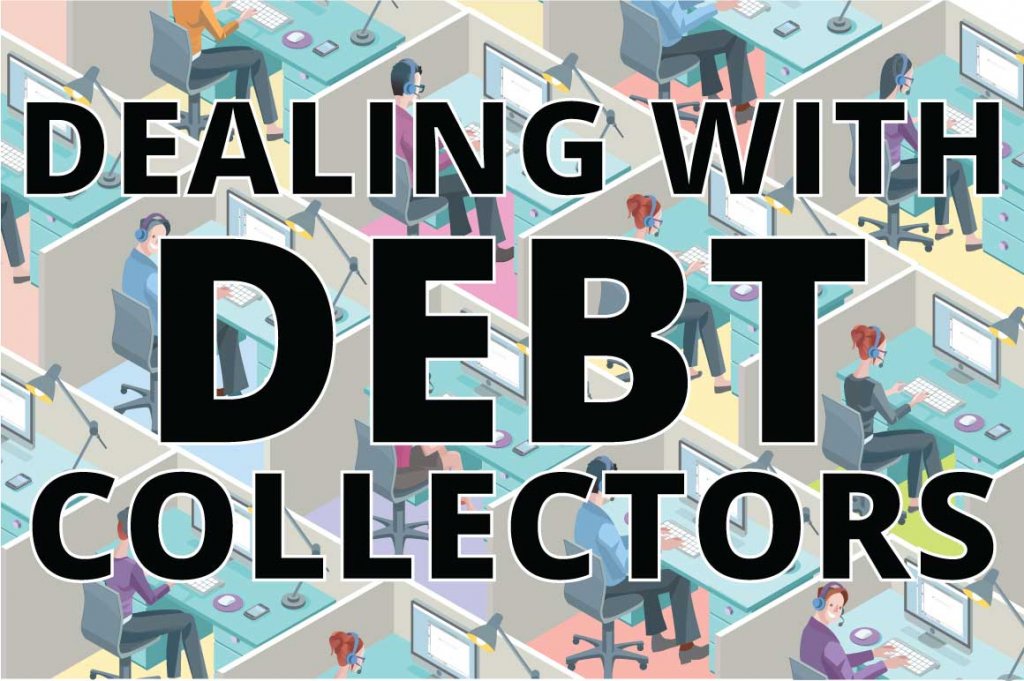Defaulting on a loan sucks and what's even worse is the debt collector that comes along with it. Being in default of a loan can happen to anyone, even people who are financially responsible. You may forget to pay a bill, or you may have a dispute with a lender on the exact amount you owe them. It is even possible to receive a collection notice for a debt you don’t even owe due to administrative mix-ups or stolen identities.
Regardless of the circumstances, the debt collector does not care, their goal is to collect money from you. You can try to ignore debt collectors, but they have made becoming a nuisance an art form and will find you everywhere. So instead of ignoring them, it is better to talk to them. When a debt collector calls, answer and speak to them so you can start the process of communication and negotiations concerning the debt that you may owe.
The goal of debt collection is to recover. It’s as simple as that, but unfortunately, at times, they tend to use unscrupulous means of collection. This is where a consumer can feel violated as the debt collector has no problem calling your home, workplace and anywhere else they think they can find you. But, there are ways you can deal with a debt collector, so you don't have to play hide and seek for the next ten years. Our editors have collected some information that will help you, you can find the details below.

What Are My Rights When I Have Debt
If you have ever dealt with debt collectors before, the whole experience may have left a bitter taste in your mouth. Due to their simple focus on recovering money from you, they tend not to be the most polite people. But, the most important thing to note from this post is that as a consumer, you are protected by the federal government, whether you are at fault or not. Here are some things debt collectors are not allowed to do;
- Debt collectors MUST never use any unfair or harmful tactics when dealing with you.
- They MUST never contact any other person besides the person who owes the debt.
- They MUST never threaten you with bodily harm or threaten to sue you, damage your credit, or even garnish your wages as punishment for not paying the loan.
- They MUST never call you before 8 am, or late in the night.
- They are NOT supposed to use obscene language or profanities when talking to you.
What Should I Do When A Debt Collector Calls You
When you receive a call from a debt collector, you must know what you should do next. Here are some steps you can take after the call.
Verify the debt
When you receive the very first call, please do not rush to pay back the money they said you owe. There are specific procedures that must be followed before payment is made and one of the very first things is to verify that you do owe the debt. The reason behind this step is that debt collectors make mistakes they are trying to collect a debt. Sometimes, when looking for a debtor, they search for something as simple as a name and call everyone with that name asking them to repay the debt. It is quite possible that the debt you are being called about doesn’t even belong to you.
So, you have every right to ask the debt collector to validate and verify the debt. This involves asking them to provide you with all the documentation that can prove you are the debt holder. This should include the date when you incurred the debt, your personal information such as your name, address and social security number. They must also show how much of the debt has been repaid so far, when you stopped paying and how much you still owe.
After sending a request for debt validation, as per the law, the debt collector has exactly 30 days, within which they must show proof that you owe the debt, and that it is legitimate. If they do not do this, they are not allowed to keep hounding you to repay because you are no longer liable for the debt.
Consider the statute of limitations
Yes. This is vital. Legally, all debts have a statute of limitations with that limitation depending on which state you live in. Each state has its own laws governing your rights when related to debt collection. Basically, a statute of limitations refers to the length of time that you are liable to repay a debt. When this time expires, you are no longer liable.
In most cases, the statute of limitations for most debts is 7 years. If the debt collector verifies that the last payment you made on the debt was 7 years ago, then you are no longer liable to repay this debt as its statute is expired.

How To Deal With Debt Collectors Conclusion
There are many other factors to consider when dealing with a debt collector, but the above points are the most important. Make the debt collector verify the debt and also check whether they are within the statute of limitations. Once you have confirmed that the debt is yours and within the time set out by the statute of limitations, it is time to do some negotiating. You should be able to work out some terms with the debt collector so you can make the payments back over time. Remember, their ultimate goal is to get the money back, so if you offer up a payment schedule and stick to it, they will stop calling you.




